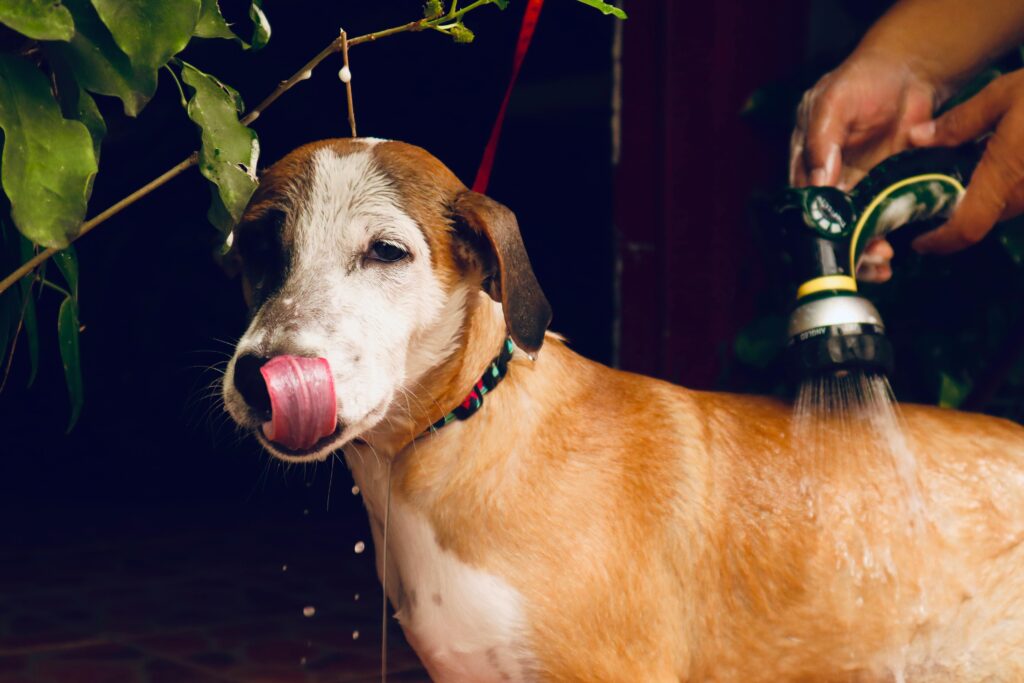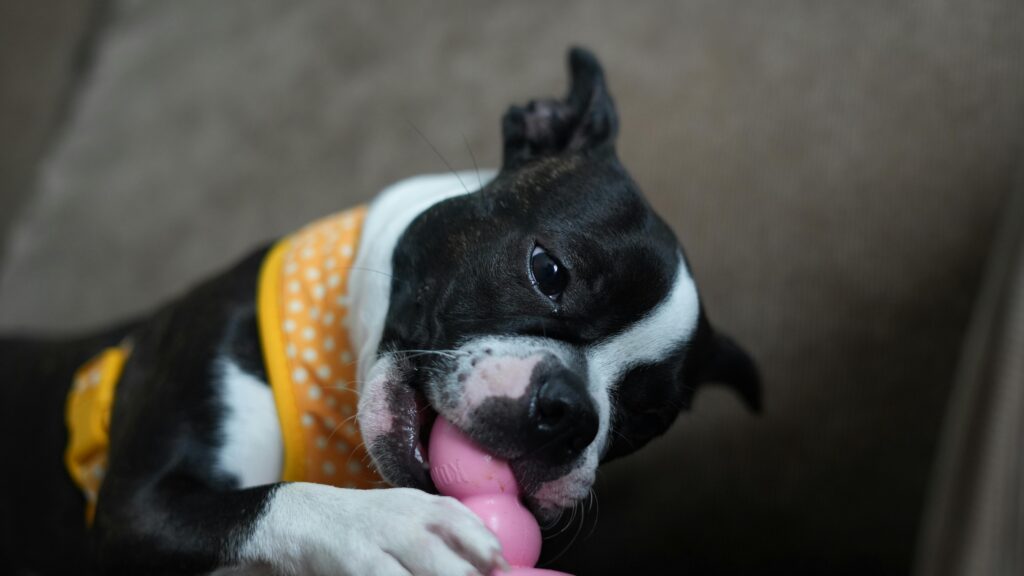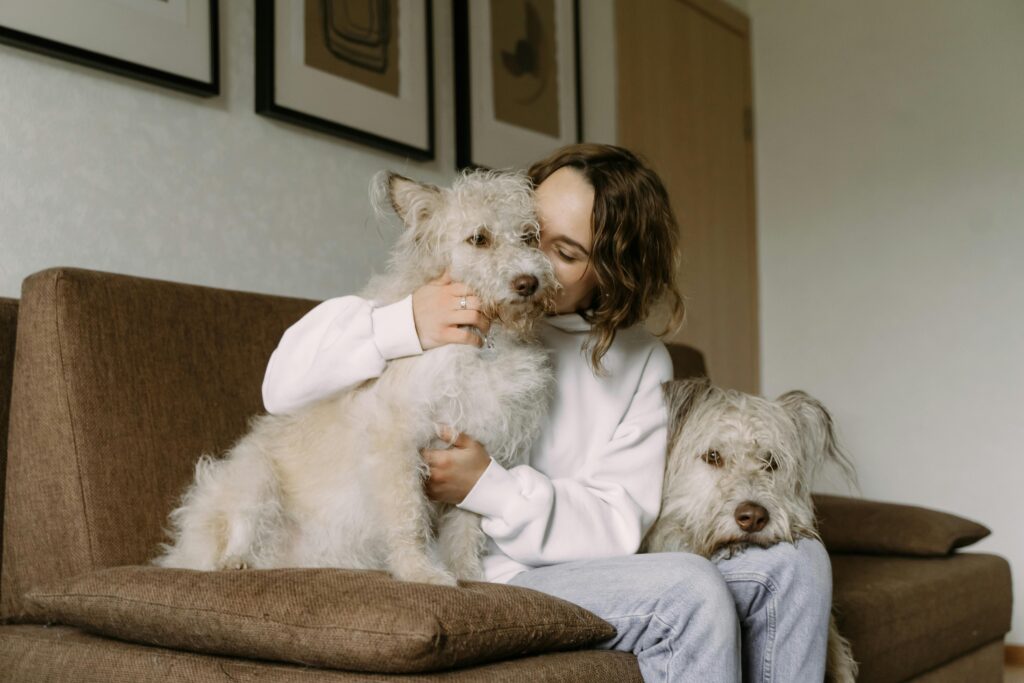Puppy urine infections are the most important problems in our puppy’s life. So we should know about puppy urine infection symptoms. As puppy owners, we quickly learn to understand our furry companions—their playful habits, their favorite toys, and even their little quirks when they need to go outside. But what happens when something feels off? Maybe your puppy is peeing more often than usual, struggling to urinate, or having accidents inside the house despite being potty trained.
I remember when my puppy, Max, started acting strangely. He was restless, frequently squatting but barely producing any urine. He even whimpered at times, and I could tell something was wrong. At first, I thought he was just being stubborn, but when I noticed a strong odor in his urine, I realized it could be something more serious—a urinary tract infection (UTI).
UTIs in puppies are more common than you might think, and they can be uncomfortable, even painful, if left untreated. The good news is that early detection and proper treatment can help your puppy recover quickly.
In this article, we’ll explore:
Common symptoms of a UTI in puppies
What causes urinary infections in dogs
When to see a vet
Home care tips and prevention strategies
If your puppy is showing signs of urinary discomfort, don’t panic—let’s break it down together.
What Is an Urinary Tract Infection (UTI) in Puppies?
A urinary tract infection (UTI) occurs when bacteria enter the urinary system, which includes the bladder, urethra, and sometimes even the kidneys. While UTIs are more common in female puppies, male puppies can also experience them.
Puppies with UTIs may show obvious signs of discomfort, but in some cases, the symptoms can be mild and go unnoticed—until the infection worsens. That’s why knowing the early signs is so important.
Symptoms of a UTI in Puppies
Here are the most common signs that your puppy may have a urinary tract infection:
1. Frequent Urination (Polyuria)
Is your puppy suddenly peeing more often than usual? If they’re asking to go out every few minutes but only produce small amounts of urine, this could be a sign of a UTI.
2. Straining or Difficulty Urinating
If your puppy squats or lifts their leg for an extended period but only dribbles a little urine, they may be experiencing pain or discomfort while trying to pee.
3. Whimpering or Crying While Peeing
UTIs can be painful, and if your puppy whines, whimpers, or yelps while urinating, it’s a clear sign that something is wrong.
4. Blood in Urine (Hematuria)
Pink, red, or brownish urine is a serious sign of infection or inflammation in the urinary tract. If you notice blood in your puppy’s pee, call your vet immediately.
5. Strong-Smelling Urine
Does your puppy’s urine smell unusually strong or foul? A UTI can cause urine to have a stronger odor due to the presence of bacteria.
6. Urinary Accidents Indoors
If your puppy was doing well with potty training but suddenly starts having accidents inside, it could be due to bladder irritation from an infection.
7. Excessive Licking of the Genital Area
Puppies with UTIs lick their private area more frequently because they feel discomfort or irritation.
8. Lethargy or Decreased Appetite
A severe UTI can cause your puppy to feel tired, sluggish, and uninterested in food. If your usually playful pup is suddenly acting withdrawn, take it seriously.
9. Fever and General Weakness
In more severe cases, a UTI can lead to a fever, shaking, or overall weakness. This could mean the infection has spread to the kidneys, requiring urgent medical attention.
What Causes UTIs in Puppies?
UTIs occur when bacteria enter the urinary tract, but there are several possible reasons why this happens:
1. Bacteria from the Environment
Puppies love exploring, and their curiosity can expose them to bacteria from contaminated water, soil, or unclean areas.
2. Holding Urine for Too Long
If a puppy holds in their urine for too long, bacteria have more time to grow in the bladder, increasing the risk of infection.
3. Incomplete Bladder Emptying
Some puppies may not fully empty their bladder when urinating, allowing bacteria to accumulate.
4. Weakened Immune System
Young puppies have developing immune systems, making them more vulnerable to infections.
5. Poor Hygiene or Dirty Living Conditions
If a puppy’s bedding, water, or potty area isn’t clean, bacteria can enter their urinary tract and cause infections.
6. Underlying Medical Conditions
Sometimes, UTIs can be linked to other health issues, such as:
- Bladder stones
- Kidney infections
- Diabetes (more common in adult dogs)
If your puppy has frequent UTIs, your vet may need to check for underlying conditions.
When to See a Vet for a Puppy UTI
While some mild UTIs may clear up on their own, it’s always best to consult a veterinarian to prevent complications.
Call your vet immediately if your puppy has:
Blood in urine
Severe pain while urinating
Vomiting, fever, or extreme lethargy
Not urinated for more than 12 hours
Persistent UTI symptoms for more than 2 days
Your vet will likely perform a urinalysis (urine test) to check for bacteria, pH imbalances, or other issues. In some cases, a urine culture or ultrasound may be needed.
Treatment for Puppy UTIs
If your vet diagnoses a UTI, the treatment will usually include:
Antibiotics: To kill bacteria causing the infection. Finish the full course even if your puppy seems better.
Pain relief medication: If your puppy is experiencing discomfort.
Increased water intake: Encouraging hydration helps flush out bacteria.
Frequent bathroom breaks: Let your puppy urinate as often as needed to prevent bacteria buildup.
Most UTIs improve within 7–10 days with proper treatment. However, if your puppy has recurring infections, additional tests may be needed.
Home Remedies and Prevention
While UTIs require veterinary care, there are ways to support your puppy’s recovery and prevent future infections:
- Encourage Hydration – Always provide fresh, clean water to help flush bacteria from the urinary tract.
- Frequent Potty Breaks – Don’t let your puppy hold in urine for too long. Take them out often, especially before bedtime.
- Keep Their Area Clean – Regularly wash your puppy’s bedding, food bowls, and potty area to reduce bacteria exposure.
- Maintain Good Hygiene – Wipe your puppy’s private area gently with a damp cloth after outdoor play or potty breaks.
- Cranberry Supplements (Vet Approved) – Some vets recommend cranberry supplements for urinary health, but always consult your vet before using them.
Final Thoughts: Should You Be Worried?
A UTI in puppies is common but should never be ignored. If caught early, it’s easily treatable with antibiotics and proper care. However, if left untreated, it can lead to painful complications like kidney infections.
The key to keeping your puppy healthy is observation—notice any changes in their urination habits and behavior. If you suspect a UTI, trust your instincts and consult your vet. Your puppy depends on you to keep them safe, happy, and comfortable. ❤️🐾
Have you ever dealt with a puppy UTI? Share your experience and how you helped your furry friend feel better! 😊🐶




